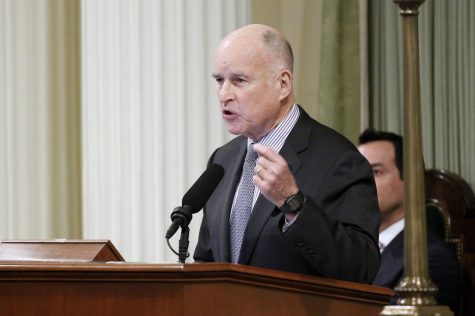
There are 114 community colleges in California and on Oct. 10th, Gov. Jerry Brown passed a new bill making the first year of community college free for California residents and new, full-time students. The bill will only cover the cost of tuition; it will not waive any fees regarding housing, books, or other living expenses.
According to Article 3, section 1 of the bill’s outline, “it is the intent of the Legislature that the California College Promise support the California Community Colleges in accomplishing all of the following goals: (a) Increasing the number and percentage of high school students who are prepared for and attend college directly from high school and increasing the percentage of high school graduates who are placed directly into transfer-level mathematics and English courses at a community college…” California high schools would need to focus on securing resources that students would need to be successful in high school while simultaneously encouraging soon-to-be graduates to attend college right after graduation.
The bill aims to, “Increase the percentage of students who successfully transfer from a community college to the California State University or the University of California and increase the percentage of students who graduate from college with a baccalaureate degree.” Lawmakers are hoping that by making student’s first year free that the amount of students that are successful and go on to get four-year degrees and well-paying careers will increase.
Prior to Brown passing the bill, there were other ways that students could receive free tuition. The Board of Governor Waiver (BOGW) is one way, which has no time frame to its awards meaning eligible students can receive it for every year they are enrolled in college. Another way is through Promise Scholarships. Promise scholarships have been awarded to students across the state here at Mesa there is a select number of Promise scholarship students.
“I was so lucky to be awarded the Promise scholarship that pays my tuition and health fees, along with awarding me $750 a year towards books. I also get priority registration for being a part of the Promise program” said Mesa Student Shauna Jentzsch.
However, just because you aren’t paying for your first year of college, doesn’t exactly make it free. According to CNN Money, “the amount of money a college usually receives for tuition would now be covered by the U.S. and state governments.”
The government has to get this money from somewhere meaning taxes would be raised substantially. These tax raises wouldn’t be temporary either: for as long as college is free, taxes will always be higher and according to CNN Money, in twenty years, you’ll still be paying for your one free year of college

